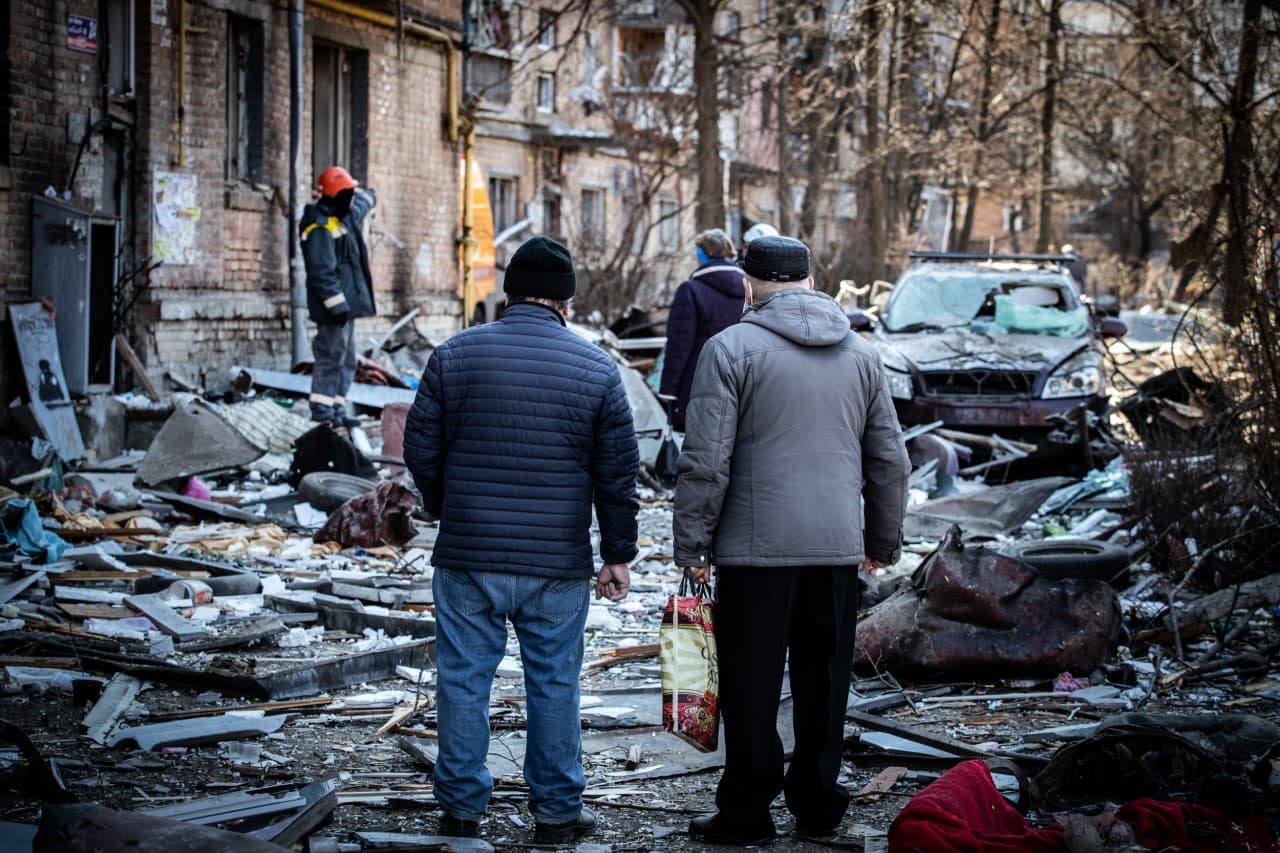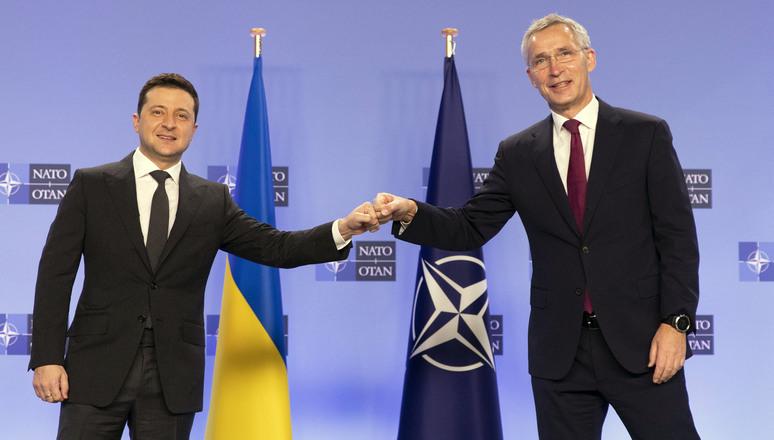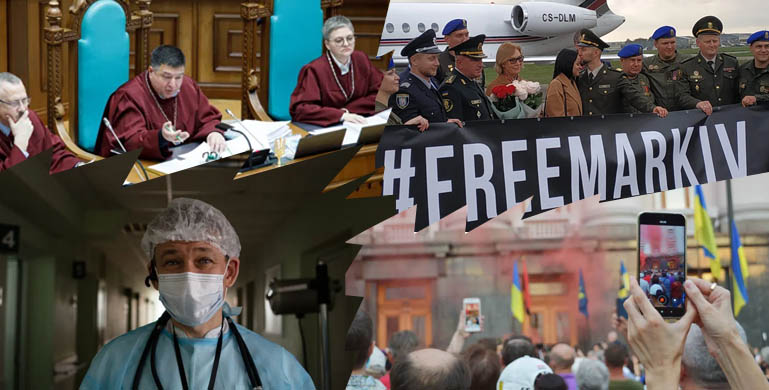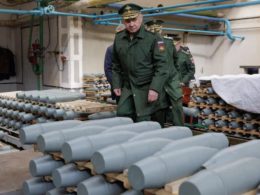It is always easier to consider and solve one problem at a time. NATO and the EU could focus on:
- the evolving humanitarian catastrophe;
- the war itself;
- global trade;
- social security;
- energy security;
- financial stability;
- defense and security;
- environmental consequences;
- climate crisis;
And all the other consequences of the unprovoked and unjustified Russian war in Ukraine.
The problem is that while war encompasses everything, the true cause of all the problems is inevitably connected to the aggressor: Russia and its distorted worldview and its increasingly aggressive foreign policy.
There are many indications that Russia is changing its strategy, and possibly reverting to the strategy it employed in Donbas (only on a greater scale).
According to the Institute for the Study of War (ISW), the initial Russian campaign to seize Ukraine’s capital and major cities and force a regime change has failed. Most experts have for weeks pointed to the lack of Russian advance in the face of fierce Ukrainian resistance, as well as several fundamental Russian short-comings (e.g., leadership, failure to achieve air supremacy, lack of logistics, the technical status of the equipment, lack of readiness, bad morale, and more).
ISW is arguing that: Stalemate is not an armistice or ceasefire. It is a condition in a war in which each side conducts offensive operations that do not fundamentally alter the situation. […] If the war in Ukraine settles into a stalemate condition, Russian forces will continue to bomb and bombard Ukrainian cities, devastating them and killing civilians, even as Ukrainian forces impose losses on Russian attackers and conduct counterattacks of their own. The Russians could hope to break Ukraine’s will to [...] fight.
Ukraine has no choice but to fight
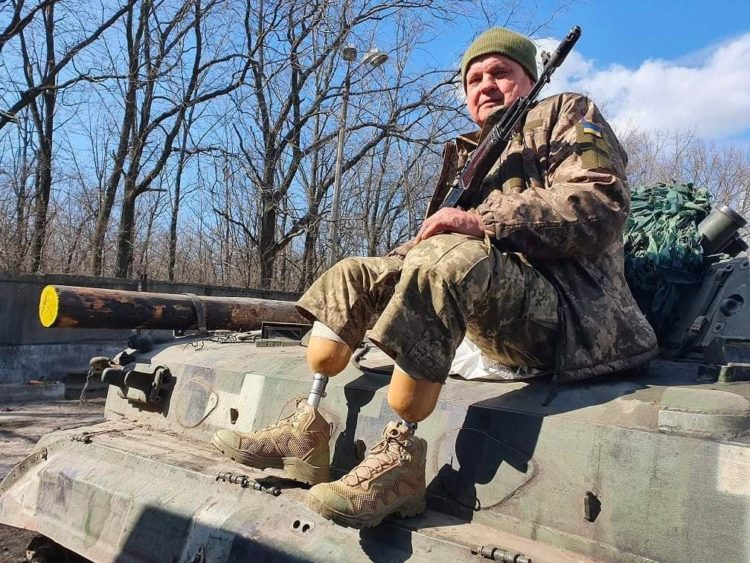
Ukraine's success during the first 25 days of the war may have forced Russia to return to a “Donbas strategy 2.0” on steroids.
While it would still be based on the parallel and synchronized use of both military and non-military means, military force will have a far more dominant role than during the first 8 years.
Militarily, the war might be about to turn into yet another “trench war.” Only this time, Russia has dug in around and within artillery range of some of Ukraine's largest cities. Additionally, it will continue employing both air and naval power to slowly destroy the country.
Ukraine will not only be experiencing an unprecedented humanitarian catastrophe but also find that its economic foundation will be destroyed.
The non-military means will continue to have an important role. Diplomacy, economy, energy, and security will be center stage. While Russia has lost all credibility in the last couple of months, it is still in the position to promise peace on its terms since it still believes that NATO will not engage militarily.
Its demands for a peaceful resolution (“Minsk Agreement 3.0”) is no less unreasonable than its previous versions. Russia is insistent that Ukraine must agree to the following demands:
- Maintain a neutral status and do not seek a NATO membership;
- Disarm and reduce the size of its military to ensure it cannot pose a threat to Russia:
- Does not host foreign military bases in its territory;
- Recognize Crimea as Russian;
- Recognize the independence of the two puppet states in the Donbas;
- Protect the Russian language in Ukraine; and
- Conduct "de-Nazification."
Like before, there are no signs of Russia stepping back from their demands. I have previously explained why neither Minsk Agreement 2.0 nor 3.0 can work. The fact that the international community signed up to the 2015 version might give Russia the hope that it will agree to the next “peace agreement” as well.
Temptation of the West
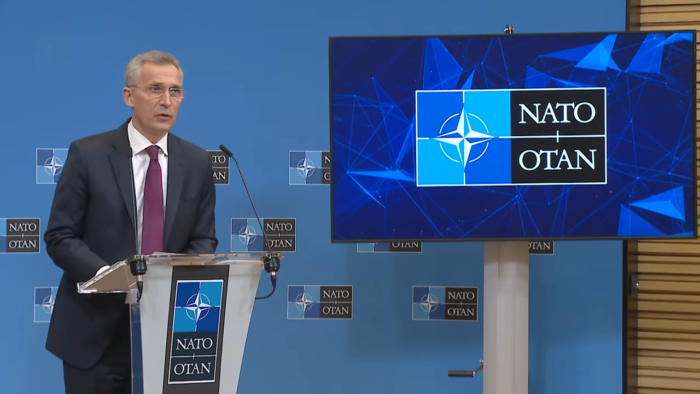
The West, unfortunately, may be tempted to believe it has more options.
Both NATO and the EU might ultimately be tempted to revert to their previous “Donbas strategy” as well, committing to yet another peace agreement without any hope of peace.
The war and the consequential sanctions are already causing massive ripple effects across the globe,
the full effect of which we have not yet felt or grasped.
United Nations Conference on Trade and Development (UNCTAD) rapid assessment of the war’s impact on trade and development shows a rapidly worsening outlook for the world economy.
A Joint Statement from the Heads of the European Bank for Reconstruction and Development, the European Investment Bank, the Council of Europe Development Bank, the International Monetary Fund, and the World Bank on 17 March, stressed that:
The entire global economy will feel the effects of the crisis through slower growth, trade disruptions, and steeper inflation, harming especially the poorest and most vulnerable. Higher prices for commodities like food and energy will push inflation up further. Countries, particularly those neighboring Ukraine will suffer disruptions in trade, supply chains, and remittances as well as surges in refugee flows. Reduced confidence and higher investor uncertainty will impact asset prices, tighten financial conditions, and could even generate capital outflows from emerging markets.
The statement was made as the world is only starting to grapple with the humanitarian catastrophe caused by the Russian assault.
The United Nations Office for the Coordination of Humanitarian Affairs (OCHA) said on 18 March that roughly 9.8 million people have either fled Ukraine or are internally displaced because of the fighting, while 12 million are stranded or otherwise face dangerous living conditions.
The costs and consequences of the biggest refugee crisis since WW2 will be unequally shared among the EU member states. Poland, Romania, Slovakia, and Hungary will inevitably carry the largest burden.
Business and finance markets
are responding negatively to the introduced measure:
- maritime transport companies, already deeply affected by COVID-19, are facing multiple challenges, ranging from disruption of trade, access to ports, increased risks, and lack of containers to manning problems;
- the European energy security is weakened, and the cost of oil, gas and electricity are increasing;
- the urgent need to strengthen the security and defense sector will come at the cost of other sectors;
- inevitably, jobs will be lost, the costs of living will increase, and the poor will become poorer.
What is today seen as a remarkable act of solidarity and support across Europe might soon turn into something else altogether.
Time is crucial
When we consider the full consequences of the war, from human suffering, destruction of residential areas, business and industry and public infrastructure, to the environmental consequences and the global ripple effects of the war, we know only one thing with absolute certainty:
The longer it takes to resolve the conflict, the longer Ukrainians will suffer and die, the longer the global economy will be affected, and the longer all of Europe’s 746 million citizens will bear the direct and indirect consequences of an unprovoked and unjustified war.
As Russia might be in the process of adjusting its strategy and settling in for attrition warfare and a stalemate it can maintain indefinitely, the West also need to adapt its strategy accordingly.
It is equally important to resolve the real cause of the war. Russia.
No peace agreement will, however, change Russia. If sanctions are prematurely lifted, Russia will be allowed to prepare for its next war.
It is important to quickly decide the prerequisites for lifting sanctions, while we all share a common sense of purpose, and before the war in Ukraine becomes our “new normal” and we inevitably become divided over its costs and consequences.
This is one of the reasons we failed in 2014 and why we ended so much worse off eight years later. We cannot possibly afford to do the same mistake one more time. We must at no point signal the will to lift “some” sanctions if Russia stops or reduces its warfighting and, in essence, turns a "hot" war into a "frozen" one.
In my humble opinion, the sanctions cannot be lifted before Russia does the following:
- Fully withdraws its proxy and regular forces from all of Ukraine;
- Transfers its strategic bank reserves to Ukraine as compensation for war damages,
- Partially demilitarizes and relocates its forces eastward;
- Turns President Putin and his inner circle over to the International Criminal Court in the Hague;
- Abolishes all Russian laws imposed during the last 8 years restricting universal rights; and
- Lastly, after the Russian Duma apologizes to the Ukrainian people and its members resign.
I am tempted to suggest that after having insisted that Ukraine should be federalized for 8 years, Russia should be forced to do the same to reduce the power of the Kremlin.
I am also tempted to suggest that it also should be asked to turn over its nuclear arsenal to Ukraine, after which the USA, the UK and Ukraine should meet in Budapest to sign a memorandum guaranteeing the sovereignty and independence of the Russian Federation. But I guess that is a bit farfetched…
Hopefully, Russia has “succeeded” in uniting the West both in both thoughts and deeds as we are coming to grips with the Russian foreign policy, its dishonesty, and extremely distorted worldview. Continued and expanded Western support to Ukraine is crucial to seeing Ukraine through the next phase of the war.
NATO must help defeat Russia in Ukraine. We must actively help stop a horrific war from turning into protracted horror. It is time to tell Russia that:
- You have XX days to get out of Ukraine before we step in, and
- There will be no “business as normal” until we see something resembling normality in Russia.
Read More:
- 87% of Russians approve potential military attack on EU countries – survey
- 71% of Russians feel “pride, joy, respect, hope” regarding war against Ukraine – poll
- Ukraine should not become a sacrificial lamb to Putin for our illusion of peace
- Concessions to Russian demands at “peace talks” will only bring further aggression

